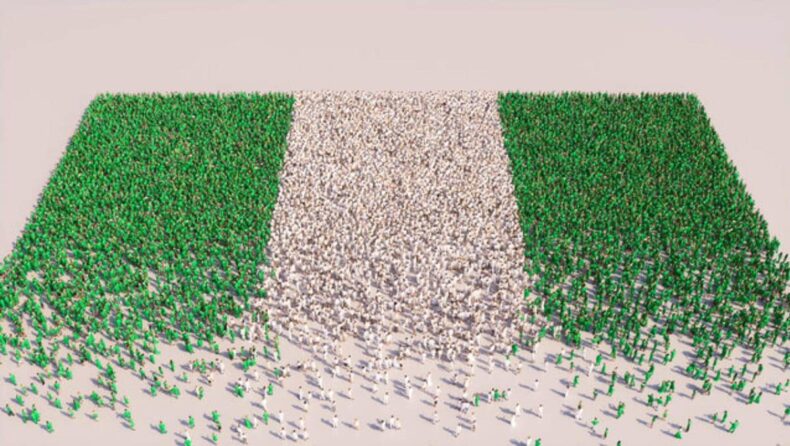Also read:
Nigerian authorities have announced a national census for the first time since 2006.
Nigeria, the most populous nation in the African continent has announced its first census in 17 years which will begin by the end of March 2024 and will end in April 2024.
Census in Nigeria was planned to be held in 2021 but was deferred by authorities citing instability and insecurity. The census would take place from 29 March 2024 to 2 April 2024.

According to predictions made by the UN, the population of west-Africa will rise rapidly in the next three decades. Nigeria’s population is expected to rise from 219 million in 2022 to 377 million in 2050, making it the third most populous nation after China, and India, overtaking the United States.

According to statistics, Nigeria’s population density is 226 people per Km2 (586 people per mi2). Despite high population density, there is an unequal distribution of the population. There is a higher concentration of population in the south and southwest urban areas such as Lagos and a lower concentration of population in the north and northeastern urban areas. This is because of the rapid economic development in the south resulting in easy availability of resources and a higher standard of living in the region. The development in the north has been marred by political instability in the region due to kidnappings for ransom and insurgencies by the Islamist organization Boko Haram, which have been raging for years.
Data collection in Nigeria: a persistent problem
It has been widely reported that the last Nigerian census, conducted in 2006, was falsified and statistics in the published report were exaggerated.
Data collection in Nigeria has been plagued by problems in the past. In 1962, the results of the first post-independence census were withdrawn. There have been questions raised about the reliability of the 1963 census.
1973’s census results were discredited and the 1981’s census was not conducted. Cheating allegations plagued the 1991 census results.
In addition to criticizing the census committee for dishonest work and fraud, foreign agencies have condemned the official census process.

This comes at a time when the west-African nation is set for general elections on 25 February 2024 to elect the President and the Vice-President.
According to the National Population Commission, the coming April 2024 census will avoid previous errors, as it has meticulously factored out errors and is expected to run smoothly.
The chairman of the population commission, Nasir Isa-Kwarra, assured citizens of a smooth and reliable census process.
Kwara said, “Preparations for the 2024 Population and Housing Census are on course and the Commission is confident that the prospect for an accurate and reliable census appears brighter than ever. This optimism is rooted in the fact that the present Commission has taken time to identify and deliberate on issues that stalled past censuses and have resolved to avoid those pitfalls through the adoption of scientific planning and modern digital technology.”
He further added, “Our vision of the 2024 census has been designed to produce not only accurate, reliable, and acceptable census but also inclusive and user-friendly census data. This desire has informed the scope and quality of preparations made for the census thus far. Census is a national event and is the responsibility of every citizen to participate by presenting themselves to be counted. The Commission will no doubt, need the support of all stakeholders to deliver to the country credible and reliable data it can use for sustainable development planning.”
The census becomes important in the region since it will lay the foundation for future resource allocation in the country. Nigeria’s median age is 18.1 years. This indicates the growing population of youth in the country which will result in a more young and productive workforce.
African countries are experiencing rapid economic growth, making it one of the world’s most important regions for big economies.













